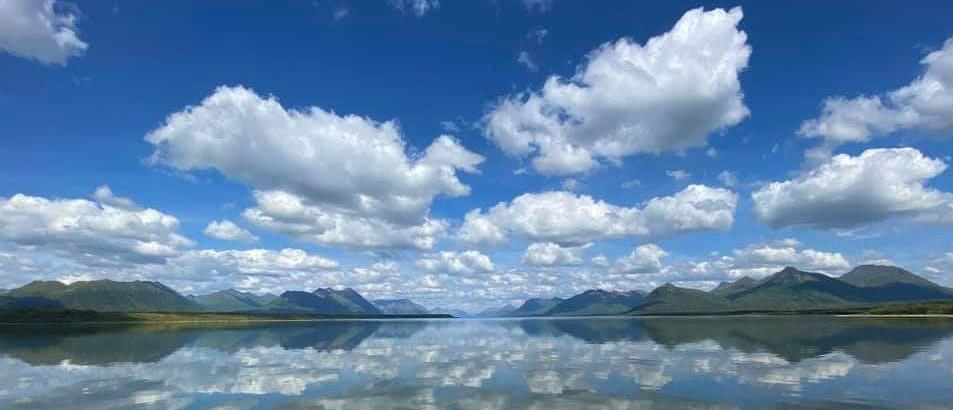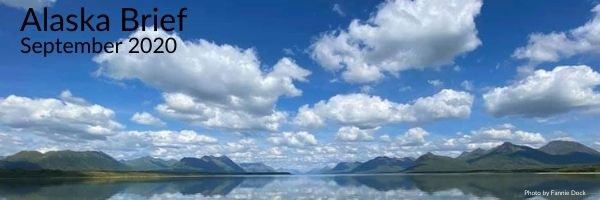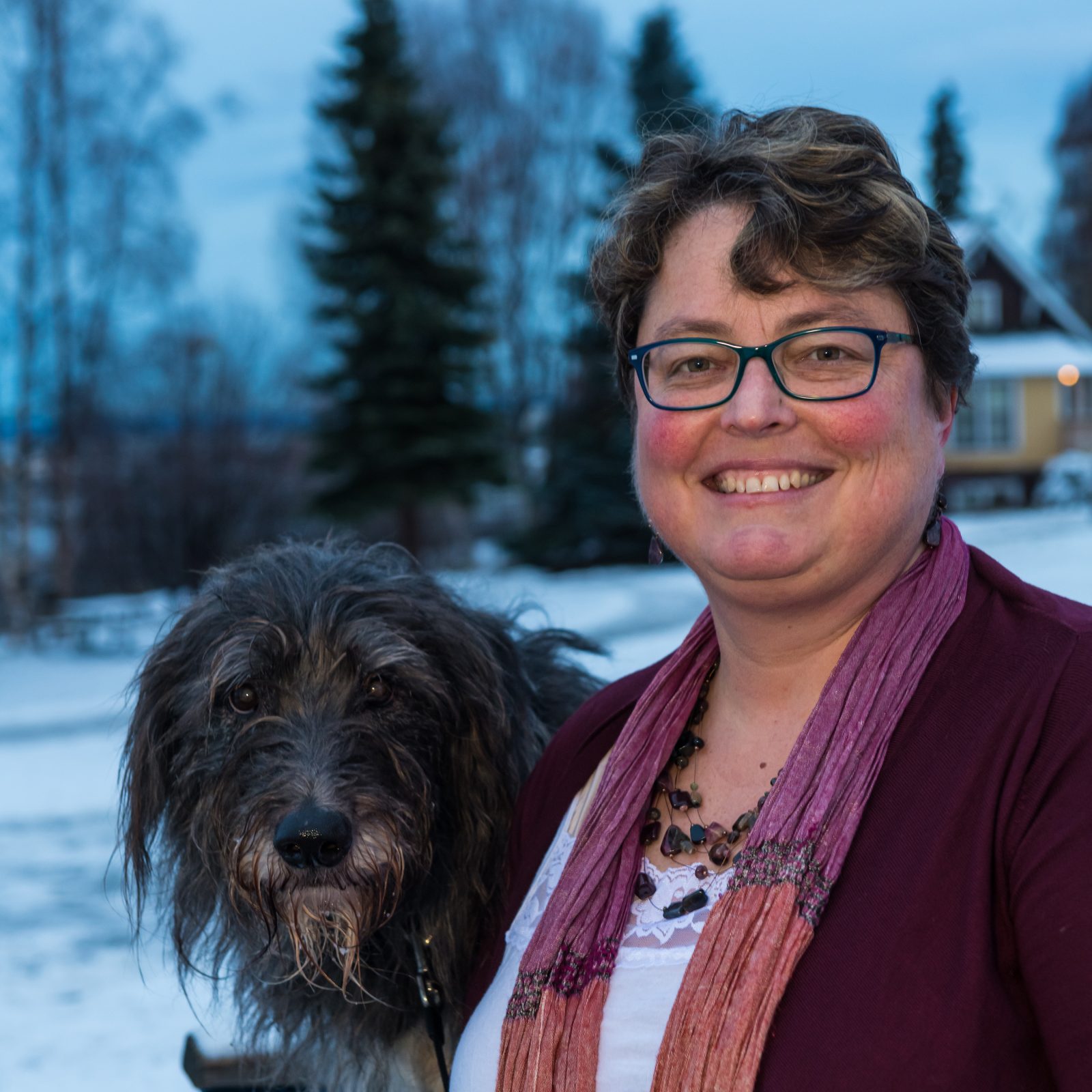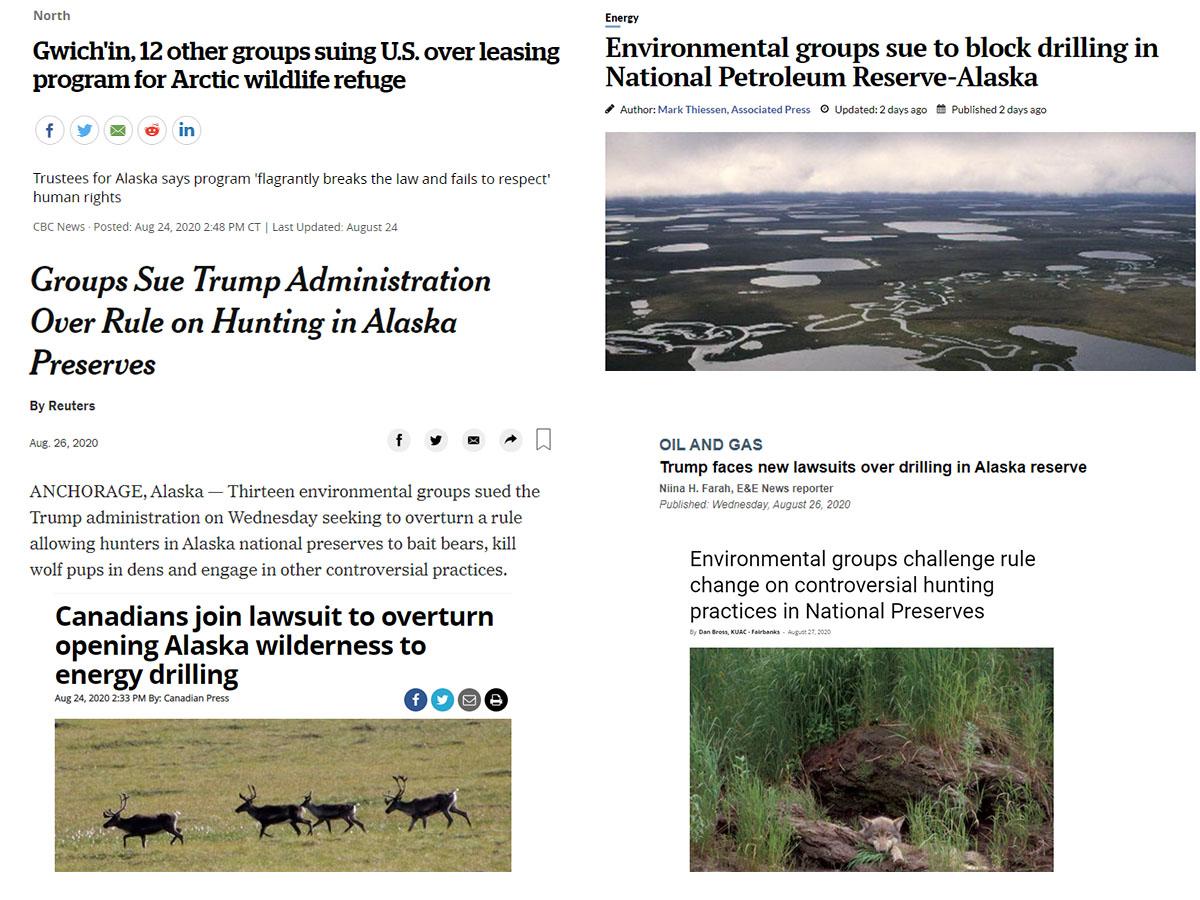
Alaska News Brief September 2020: A bedrock law in peril

Elections can lead to dramatic change in how we take care of each other and all communities. It is also an important right in making our democracy work. So please vote–either in person or by mail!
We have to remember, too, that federal and state policy can have consequences that endure long after those who promoted them have moved on.
NEPA: A bedrock law in peril
One of the most destructive efforts by the Trump administration to dismantle environmental regulations and eradicate the voice of Americans happened this summer. Many people may be unfamiliar with this rollback, but it will have significant and deep impacts on how the public gets to participate in federal decisions.
The National Environmental Policy Act, affectionately called NEPA in the alphabet soup of environmental law, is the cornerstone law that requires the federal government to look at the environmental, economic, social, and health impacts of any decision that might impact the environment.
It applies to federal permitting decisions like those related to logging, mining, transportation, oil and gas extraction, and infrastructure like pipelines. It also applies to consequential multi-year land management plans that can set out how federal lands may be subjected to extractive projects.
Most important, it gives local people and the public generally the chance to participate in the federal decision-making process to convey their concerns, knowledge, approval, and disapproval.
Silencing the public
The Trump administration’s revisions of the NEPA regulations in July are disastrous and far-reaching. The new rule limits public review of projects that affect them, and allows agencies to ignore the climate and other cumulative impact consequences of the projects they permit.1
These changes could have huge impacts on destructive proposals like the Pebble mine.2
The Trump administration has essentially said unilaterally, “No need to look at how a project will pollute or contribute to climate impacts over time, or how its toxic waste will have effects on downstream rivers and lakes, salmon and bears.”
Counter to the intent of NEPA.
Imagine ignoring how a hazardous tailings dam failure of any scope and size could devastate diverse and thriving salmon runs and communities across a vast integrated watershed–not just for the life of the mine, but century after century, in perpetuity. Well, that’s what’s happening here.
Trump’s NEPA revision actually says things like, “Effects should not be considered significant if they are remote in time, geographically remote, or the product of a lengthy causal chain.”So much for future salmon runs, future food sources, future fishing jobs, future generations.
This corrupt version of NEPA also lets the companies proposing projects–for their financial gain–take a greater role in preparing the environmental review documents. (Fox in the hen house? You bet.) It perverts the definition of a “major federal action” to create loopholes allowing some projects to avoid any environmental review at all, despite having significant environmental impacts. It gives agencies the go-ahead to ignore public comments that they decide do not meet the new, confusing, vague and burdensome language about what comments should look like.
All these changes together let agencies give the thumbs up to projects with potentially catastrophic consequences to waterways, salmon runs, caribou migrations, local economies, and community and public health without even looking at those impacts or securing a way for people to have a voice in what happens to their families and communities.
Fighting for and with the laws that protect Alaska
With some irony, NEPA was signed into law by President Nixon in the time when rivers were on fire and the air wasn’t fit to breathe in some areas. It was enacted to make sure federal agencies evaluate the potential consequences of their actions and to make sure that the public can know what is happening in their communities and contribute to agency decision-making. At its core, NEPA was intended to advance democracy, justice, and forward-thinking decision-making.
This administration’s gutting of NEPA dismantles a law that gave local people a voice and made agencies accountable to the people of this country.
The scope and reach of this Trump administration rollback, effective this week, will do damage to Alaska’s lands, waters, wildlife and people long after today’s agency appointees and political operatives are gone.
Over twenty states and other groups have filed lawsuits charging the administration with illegally crippling this law.3 We support these legal actions.
Our job will always be to fight for bedrock laws like NEPA and use them to prevent corrupt actions from undermining the law and the health of our state.
There’s a long arc to this work, and a long path ahead. We’re grateful to move onward beside you.


Vicki Clark, executive director
Footnotes:
- Trump Weakens Major Conservation Law to Speed Construction Permits
- Pebble Mine’s Environmental Review Foreshadows Future “Streamlined” Process Forged by Trump Administration
- Lawsuit Against Trump Administration for Illegally Sabotaging Bedrock Environmental Law

Take care of the land and it will take care of you
Office assistant Fannie Dock talks about growing up in Bristol Baylearning that if you take care of the land, it takes care of you.

A rundown on our August lawsuits
We filed multiple lawsuits charging agencies with breaking the law in an effort to sell off public lands while putting people and wildlife in peril.

Texas Ranch life taught Ashley that to love land is to protect it
Office manager Ashley Boyd talks about how riding horses across a family ranch in west Texas taught her what it means to stand up for the land.


